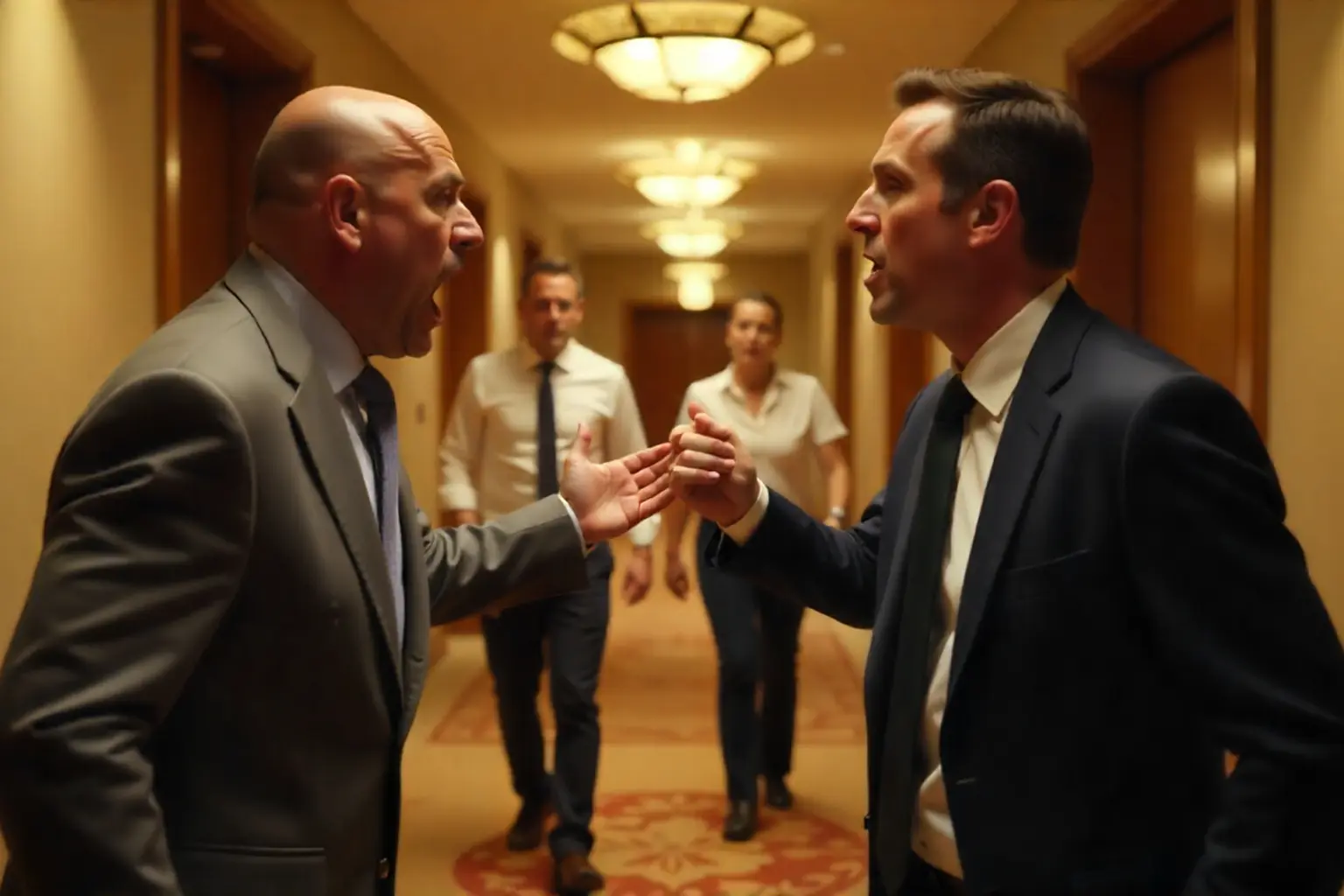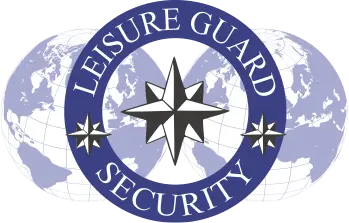When guests choose a hotel, they are buying more than a bed for the night. They are investing in comfort, relaxation, and, above all, a sense of safety. For most, the idea that something could go wrong, whether a theft, a fire alarm, or an unruly guest, never crosses their mind until it happens. Yet when it does, the way a hotel responds becomes the defining factor in how that stay will be remembered.
Hotel Security incidents in vary widely in scale and severity. Some are disruptive but minor, such as noise from an intoxicated guest, while others are more serious, like property theft or aggressive behaviour. Regardless of the type, the one constant is this: guests need reassurance. How management communicates, the steps staff take, and the visible measures put in place after an incident can mean the difference between a negative review and a loyal repeat customer.
In today’s digital-first world, where a single review on TripAdvisor or Google can influence hundreds of potential bookings, hotels cannot afford to ignore the power of reassurance. Guests don’t just evaluate the incident itself; they evaluate how it was handled, whether they felt supported, and if the hotel acted with professionalism.
This article explores the strategies hotels can use to reassure guests after a security incident, from understanding guest psychology and communication best practices to service recovery tactics, staff training, and reputation management. By the end, hotel managers will have a clear roadmap to not only recover from incidents but also turn them into opportunities to build trust, loyalty, and long-term reputation.
Understanding Guest Psychology After an Incident
Before a hotel can reassure guests, it must first understand how incidents affect them. Security events don’t just disrupt schedules; they trigger powerful emotional responses. A guest’s perception of safety is as important as their actual safety, and once it’s shaken, it takes deliberate action to restore.
Guests may respond differently depending on personality, culture, and past experiences, but common themes emerge:
- Fear and anxiety – Guests worry that the hotel isn’t safe, especially if travelling with family.
- Frustration and inconvenience – They expected comfort and relaxation, not disruption.
- Uncertainty and confusion – Many don’t know what actually happened, which fuels rumours and panic.
- Anger and resentment – Especially if they feel staff were slow, dismissive, or unprepared.
- Loss of trust – They may question whether management values safety enough.
Guest Emotional Responses vs Reassurance Strategies
| Guest Emotional Response | Reassurance Strategy |
|---|---|
| Fear or anxiety | Provide visible security presence, explain preventive measures, offer safe relocation if necessary. |
| Frustration and inconvenience | Apologise sincerely, offer goodwill gestures (late checkout, free breakfast). |
| Uncertainty and confusion | Communicate clearly, provide updates, avoid vague or inconsistent explanations. |
| Anger or resentment | Have managers personally address concerns, listen actively, and escalate resolution quickly. |
| Loss of trust | Show commitment to improvement, explain follow-up actions, offer loyalty incentives for future stays. |
Key Takeaway:
The emotional ripple effect of an incident is often larger than the event itself. Reassurance is about restoring confidence, not just resolving the problem.

Types of Hotel Security Incidents That Worry Guests Most
Not all hotel incidents are equal. Some are disruptive but minor, while others strike directly at the heart of guest safety. What they have in common is the potential to cause anxiety, inconvenience, and damage to a hotel’s reputation if handled poorly. Understanding which incidents cause the most concern helps managers prepare the right reassurance strategies.
The following are the most common:
- Theft or attempted theft – loss of belongings is one of the biggest fears for travellers.
- Noise disturbances and anti-social behaviour – late-night parties, shouting, or intoxicated guests.
- Aggression or violence – towards staff, other guests, or in public spaces like bars.
- Fire alarms and evacuations – even false alarms leave guests shaken.
- Suspicious behaviour or unauthorised access – unregistered visitors, people in restricted areas.
- Cybersecurity breaches – such as compromised Wi-Fi networks or data leaks.
Hotel Security Incidents and Their Impact on Guests
| Type of Incident | Guest Concerns | Impact on Hotel |
|---|---|---|
| Theft of belongings | Loss of valuables, feeling unsafe in room | Complaints, insurance claims, loss of trust |
| Noise & Hotel anti-social behaviour | Lack of sleep, ruined experience | Negative reviews, refunds, strained staff resources |
| Aggression or violence | Fear for personal safety, reluctance to return | Legal implications, reputational damage |
| Fire alarms & evacuations | Stress, disruption to rest, worry about safety | Refunds, operational downtime, shaken confidence |
| Suspicious/unregistered visitors | Concern about hotel security controls | Questions over safety standards, lower confidence |
| Cybersecurity breaches | Fear of identity theft, compromised personal data | Financial penalties, reputational harm |
Key Takeaway
Guests don’t just remember what happened; they remember how safe or unsafe they felt. Hotels must be prepared with tailored reassurance strategies for each type of incident.
Immediate Response: The First 15 Minutes Matter
The way a hotel reacts in the first 15 minutes after an incident sets the tone for everything that follows. A swift, calm, and professional response reassures guests that the situation is under control, while hesitation or confusion can cause panic and lasting damage to reputation.
Key elements of an effective immediate response include:
- Swift acknowledgement – Guests need to know the hotel is aware of the problem. Silence creates fear and speculation.
- Visible action – A calm presence of staff or security shows the issue is being addressed.
- Clear communication – Information should be accurate, consistent, and delivered quickly to avoid rumours.
- Guest focus – Even when resolving the issue, hotels must show care for how guests are affected
First 15-Minute Actions and Their Purpose
| Action | Purpose | Example |
|---|---|---|
| Acknowledge quickly | Prevents rumours, shows awareness | “We are aware of the situation and are taking care of it.” |
| Staff visible on-site | Reassures guests, creates calm atmosphere | Manager present in lobby or corridor |
| Provide clear updates | Reduces confusion and panic | “There was a fire alarm test, all is safe.” |
| Security presence | Adds authority, deters escalation | Officer positioned discreetly nearby |
| Prioritise guest wellbeing | Shows care and empathy | Offering water, relocation, or reassurance |
Key Takeaway
The golden rule is simple: guests can forgive disruption, but they won’t forgive silence or uncertainty. The first 15 minutes can either win or lose their trust.
Hotel Security Services
Stay Ahead of the Risks
With smart CCTV, access control, and experienced hotel security officers, we help hotels prevent incidents before they happen. Contact us today to discuss a tailored security package for your property.
Staff Communication with Hotel Guests
What staff say, and how they say it, can make or break a guest’s perception after an incident. Guests value honesty, empathy, and professionalism far more than excuses or silence. Every member of staff, from reception to housekeeping, should feel confident in delivering a consistent message.
Key communication principles:
- Empathy first – Acknowledge the guest’s feelings before explaining.
- Clarity over detail – Provide enough information to reassure without overwhelming.
- Consistency across staff – Ensure all staff give the same explanation.
- Professional tone – Calm, respectful, and never defensive.
What to Say vs What Not to Say
| Situation | What to Say (Positive) | What Not to Say (Negative) |
|---|---|---|
| Noise complaint | “We’re sorry for the disruption. We’ve spoken to the guest involved and it’s being resolved.” | “It’s just a noisy guest, nothing we can do.” |
| Security concern | “Your safety is our top priority. Security is already on-site and monitoring the situation.” | “Don’t worry about it, it’s not a big deal.” |
| Fire alarm/evacuation | “The alarm has been checked. There is no danger, and we apologise for the inconvenience.” | “It was just a false alarm, you can go back.” |
| Aggressive guest | “We’ve addressed the behaviour, and measures are in place to prevent further disruption.” | “That guest was out of control, but it should be fine now.” |
| Theft suspicion | “We’re taking this seriously and following protocol to investigate immediately.” | “That’s unusual, it doesn’t really happen here.” |
Key Takeaway
Guests want reassurance that they are heard and supported. Empathy and professionalism build trust, defensiveness and minimisation destroy it.
Service Recovery Tactics That Rebuild Trust
Even when an incident is resolved, the guest experience has already been disrupted. This is where service recovery becomes critical. A thoughtful gesture or proactive follow-up can turn a negative situation into a positive memory, often leaving guests more loyal than before.
Effective recovery goes beyond refunds. It shows empathy, accountability, and a genuine commitment to guest satisfaction. The key is tailoring the response to the type of incident.
Incident Types vs Best Service Recovery Actions
| Incident Type | Best Service Recovery Actions | Why It Works |
|---|---|---|
| Noise complaint | Apologise, offer complimentary breakfast or late checkout | Shows recognition of lost rest and values guest’s time |
| Aggressive guest encounter | Manager follow-up, room relocation, possible upgrade | Reassures safety, restores sense of control |
| Fire alarm/evacuation | Apology letter, discount on future stay, small amenity gift | Acknowledges disruption and builds goodwill |
| Theft or suspected theft | Personal manager involvement, immediate action, potential compensation | Demonstrates seriousness and responsibility |
| Data/cyber breach | Clear explanation, assurance of corrective steps, possible credit monitoring support | Rebuilds trust through transparency and accountability |
Key Takeaway
Guests don’t judge hotels for having problems, they judge how fairly and personally those problems are addressed. Service recovery is an opportunity to turn disruption into loyalty.
How to Reassure Non-Directly Affected Hotel Guests
Not every guest will be directly involved in a security incident, but many will still notice the disruption. A late-night argument, police presence, or fire alarm can leave even unaffected guests questioning whether they are safe. Hotels often make the mistake of focusing only on the immediate complainants, while others quietly leave with a negative impression.
By proactively reassuring all guests who may have seen or heard the incident, hotels protect their reputation and prevent wider dissatisfaction.
Guest Type vs Reassurance Approach
| Guest Type | Reassurance Approach | Example |
|---|---|---|
| Families | Personal reassurance from staff, highlight child safety measures | “We’ve increased monitoring tonight to ensure peace and safety.” |
| Business travellers | Professional, concise explanation | “The situation was addressed quickly, no further disruption.” |
| Leisure guests | Friendly reassurance, small goodwill gesture if needed | “We’re sorry about the disturbance earlier. Here’s a complimentary drink voucher.” |
| Long-stay/loyalty members | Manager follow-up, emphasis on long-term trust | “We appreciate your loyalty. Your safety and comfort remain our highest priority.” |
Key Takeaway
Silent observers can be just as important as directly affected guests. A small gesture of reassurance prevents negative word-of-mouth and online reviews.
Hotel Security Services
Stay Ahead of the Risks
With smart CCTV, access control, and experienced hotel security officers, we help hotels prevent incidents before they happen. Contact us today to discuss a tailored security package for your property.
Role of Security Teams in Reassurance
Security teams are often seen only as enforcers, but in hospitality, their role is much broader: they are also ambassadors of reassurance. The presence of professional, approachable security staff communicates that the hotel is prepared, proactive, and prioritises safety.
The challenge lies in balance, too much visibility can make guests feel like they’re in a high-risk environment, while too little presence leaves them uncertain. The best approach is discreet visibility, where security blends into the setting but is ready to step forward when needed.
Security Action vs Guest Perception
| Security Action | Guest Perception | Impact on Reassurance |
|---|---|---|
| Visible patrols in lobby and corridors | “The hotel is actively keeping us safe.” | Builds confidence, deters misconduct |
| Discreet observation during incidents | “They’re in control without making a scene.” | Maintains calm atmosphere |
| Professional, calm intervention | “The situation is being handled seriously and fairly.” | Reduces guest anxiety |
| Collaborative work with staff | “The whole team is aligned on safety.” | Strengthens trust in hotel’s organisation |
| Friendly guest interactions | “Security staff are approachable, not intimidating.” | Reinforces hospitality-first image |
Key Takeaway
Security is not just about control, it’s about reassurance. The right presence calms guests, supports staff, and enhances trust in the hotel’s professionalism.
Documenting and Learning from Incidents
Handling the incident itself is only part of the process. The follow-up, how the event is logged, reviewed, and learned from, is just as important for long-term reassurance. When guests see a structured response, it signals professionalism and accountability.
Documentation also protects the hotel legally, supports insurance claims, and helps managers identify recurring issues (such as noise complaints tied to specific weekends or repeat offenders). Sharing lessons with staff after incidents ensures the team is better prepared for next time.
Documentation Step vs Benefit
| Documentation Step | Benefit | Example |
|---|---|---|
| Record incident details | Creates accountability and accuracy | Note time, location, people involved |
| Capture evidence | Protects against disputes | CCTV footage, photos of damage |
| Staff reports | Provides multiple perspectives | Reception + security + housekeeping notes |
| Management review | Identifies patterns and risks | Recognising peak times for disruption |
| Follow-up actions | Shows commitment to improvement | Adjust staffing levels, update policies |
Key Takeaway
Documentation turns disruption into learning. Hotels that record and review incidents build stronger systems, protect their staff, and reassure guests that they take safety seriously.
Protecting Online Reputation After Incidents
In the digital age, the aftermath of a security incident doesn’t end in the hotel lobby, it continues online. Reviews on TripAdvisor, Google, or Booking.com shape guest perceptions long before they arrive, and one negative review about safety can outweigh dozens of positive ones.
The key is proactive reputation management. Encourage guests to speak with staff before leaving negative feedback, monitor reviews daily, and respond with professionalism. A well-crafted response not only reassures the original guest but also demonstrates accountability to future customers.
Review Scenario vs Best Response
| Review Scenario | Best Response | Why It Works |
|---|---|---|
| Guest upset by noise incident | Apologise, outline preventive action, offer upgrade | Shows empathy, outlines solution, offers incentive |
| Guest concerned about theft | State seriousness, outline immediate response, request direct contact | Reassures future readers hotel acts swiftly |
| Guest frustrated by false fire alarm | Explain safety-first approach, apologise | Balances apology with justification |
| Aggressive guest incident | Express regret, highlight staff professionalism | Shows control and reassurance |
| Vague complaint about safety | Apologise, highlight 24/7 staff and measures | Provides reassurance even without specifics |
Key Takeaway
Negative reviews aren’t always damaging, if handled correctly, they become opportunities to showcase professionalism, empathy, and a commitment to safety.
Long-Term Guest Confidence Strategies
Reassuring guests after a security incident doesn’t end when the situation is resolved. Long-term strategies are essential to prevent repeat issues and to demonstrate that the hotel is committed to ongoing safety and guest wellbeing. These measures not only protect against future risks but also build trust and loyalty over time.
Hotels that consistently invest in staff training, modern security measures, and transparent communication set themselves apart as places where guests feel safe to return, even after experiencing disruption.
Long-Term Strategy vs Guest Reassurance Benefit
| Long-Term Strategy | Guest Reassurance Benefit | Example in Practice |
|---|---|---|
| Regular security audits | Confidence that risks are proactively managed | Annual third-party safety checks |
| Staff training refreshers | Guests see consistent professionalism | Quarterly de-escalation workshops |
| Visible but discreet security | Safety without intimidating atmosphere | Plainclothes officers in lobby |
| Access control upgrades | Trust that only authorised people enter | Keycard-controlled elevators |
| Partnership with local police | Assurance of strong external support | Sharing intelligence about local risks |
| Transparent communication | Builds guest trust and loyalty | Posting safety updates on hotel website or app |
Key Takeaway
Long-term reassurance is about consistency. Guests who see a hotel continually investing in safety measures will trust that their wellbeing is a permanent priority, not just a response to incidents.
Turning Disruption into Trust
Security incidents in hotels are sometimes unavoidable. Noise, theft, fire alarms, or disruptive behaviour can happen even in the best-run properties. What sets a successful hotel apart is not the absence of problems, but the quality of the response.
Guests don’t measure their experience by the incident itself, they measure it by how safe, valued, and reassured they felt afterwards. When hotels act swiftly, communicate clearly, show empathy, and follow through with service recovery, they can transform a negative situation into a moment of loyalty-building.
By combining short-term actions (such as immediate acknowledgement and guest reassurance) with long-term strategies (like training, technology, and partnerships), hotels position themselves as both hospitable and trustworthy.
The ultimate goal is simple:
- Guests should leave believing the hotel is safe.
- Staff should feel supported and confident.
- The hotel’s reputation should be stronger than before.
When reassurance is handled well, security incidents stop being a threat to reputation and become opportunities to demonstrate professionalism, care, and a genuine commitment to guest wellbeing.
FAQ's How Hotels Reassure Guests After a Security Incident
How do hotels reassure guests after a security incident?
Hotels reassure guests after a security incident through clear communication, visible staff presence, and empathetic service recovery. Staff should quickly acknowledge the issue, explain what has been done to resolve it, and show that preventative measures are in place for the future. Many hotels also provide goodwill gestures such as complimentary meals, upgrades, or discounts to soften the impact. The most important reassurance comes from professionalism: guests want to see that the hotel was prepared and that their wellbeing is the top priority.
Why is communication important after a hotel security incident?
Communication is vital because guests fear the unknown more than the event itself. A lack of information leads to rumours, panic, or frustration. By giving clear, consistent updates, hotels demonstrate control and build trust. For example, instead of saying “It’s fine now”, staff should explain: “There was a false alarm. Our systems are tested regularly to keep you safe, and the situation is fully resolved.” This level of transparency reassures guests that the hotel values honesty and safety above convenience.
What are the best service recovery strategies for hotels after an incident?
The best service recovery strategies combine apology, empathy, and action. Hotels often:
Relocate guests to quieter or safer rooms.
Provide late checkout or complimentary meals.
Offer discounts for disrupted nights.
Send a manager to personally check in with affected guests.
The goal is to show that the hotel values the guest’s experience more than short-term profit. A sincere, proactive recovery strategy often turns a negative into loyalty, as guests remember the care they received.
How can hotels reassure guests who were not directly affected by the incident?
Even guests who weren’t directly involved can feel uneasy if they witnessed disruption. Hotels should acknowledge the disturbance with a short reassurance message, such as a note slipped under doors or a friendly check-in at reception. Small gestures like complimentary drinks or visible staff patrols also provide reassurance. The key is preventing unaffected guests from leaving with doubts about safety, which could turn into negative reviews despite not being directly involved.
How do security teams help reassure guests in hotels?
Security teams play a dual role: they protect and reassure. A visible but calm security presence signals that the hotel is prepared. Discreet observation during tense moments prevents escalation without alarming other guests. When hotel security staff interact with guests in a professional and approachable way, it reinforces the message that safety and hospitality go hand in hand. Guests who feel watched over, not watched, tend to leave with a stronger sense of trust in the hotel.
What role does staff training play in guest reassurance after incidents?
Staff training ensures that every employee knows how to respond confidently and consistently. Training covers de-escalation techniques, emergency procedures, and guest communication skills. Well-trained staff can handle incidents calmly, prevent panic, and provide guests with accurate information. From housekeeping to management, a united and knowledgeable team reassures guests that the hotel is organised and capable, even during disruption.
Should hotels compensate guests after a security incident?
Compensation isn’t always necessary, but it is often expected when guests suffer a loss of sleep, safety, or enjoyment. Hotels may offer room discounts, loyalty points, or complimentary services. The value of the compensation should reflect the severity of the incident, but the gesture itself matters more than the amount. Thoughtful compensation communicates that the hotel takes responsibility and values the guest’s comfort and trust.
How can hotels protect their online reputation after a security incident?
Hotels protect their online reputation by actively responding to guest reviews. Negative reviews should never be ignored. A professional response that apologises, explains corrective actions, and invites direct communication can turn criticism into reassurance for future readers. Monitoring review platforms daily ensures that issues are addressed quickly. Many hotels also follow up with affected guests privately, encouraging them to update or reconsider their review after resolution.
What long-term measures build guest confidence in hotel safety?
Long-term measures include:
Regular security audits and upgrades.
Ongoing staff training.
Modern access control systems.
Partnerships with local police.
Transparent communication about safety policies.
These steps show guests that the hotel is committed to safety every day, not just during crises. Over time, this builds a reputation of trustworthiness, making guests more likely to return and recommend the property.
How do hotels reassure guests after false alarms or evacuations?
False alarms can be disruptive, but they also prove the hotel’s systems work. Hotels should explain this clearly: “The alarm was triggered, but it shows our safety systems are active and functioning. We apologise for the disruption.” Offering small recovery gestures such as complimentary breakfast helps balance the inconvenience. By framing the alarm as a sign of proactive safety, hotels reassure guests that their wellbeing is always prioritised.
How can hotels reassure guests after an aggressive guest incident?
When aggression occurs, reassurance depends on swift and professional intervention. Staff should separate the individuals involved, involve security, and ensure bystanders feel safe. Afterwards, managers should personally check on guests who witnessed the incident. Offering relocation to a different room or a courtesy follow-up call reinforces safety. Most importantly, staff should explain what measures were taken to prevent repeat behaviour. This combination of action and transparency rebuilds confidence.
How do hotels balance security presence without intimidating guests?
The balance comes from discreet visibility. Uniformed officers in lobbies show presence, while plainclothes security or discreet surveillance keeps the environment relaxed. Staff should be approachable, greeting guests warmly while remaining professional. By blending security with hospitality, hotels create an atmosphere that feels safe without feeling over-policed. Guests are reassured by knowing help is close without being made to feel watched.
What documentation do hotels keep after a security incident?
Hotels document incidents with detailed reports, evidence, and management reviews. Documentation often includes:
Incident time, location, and individuals involved.
Staff witness statements.
CCTV footage or photos.
Actions taken and follow-up measures.
This protects the hotel from disputes, supports insurance claims, and provides learning opportunities for the team. When guests see that incidents are formally recorded, they gain confidence in the hotel’s professionalism and accountability.
How can hotels reassure guests about data and cyber security?
Cyber security is just as important as physical safety. Hotels reassure guests by highlighting encryption, secure booking systems, and compliance with data protection laws (such as GDPR). If a breach occurs, hotels should act transparently, explain what data may be affected, and outline immediate corrective steps. Offering monitoring support or compensation in serious cases helps guests feel protected and valued.
How quickly should hotels respond to security incidents to reassure guests?
The first 15 minutes are crucial. Quick acknowledgement prevents rumours and panic. Staff should be visible, give clear updates, and show that the situation is under control. Even if the full details aren’t yet available, a simple statement like “We are aware of the issue and it’s being managed” reassures guests far more than silence. A fast, professional response sets the tone for trust, whereas hesitation can cause long-term reputational damage.



